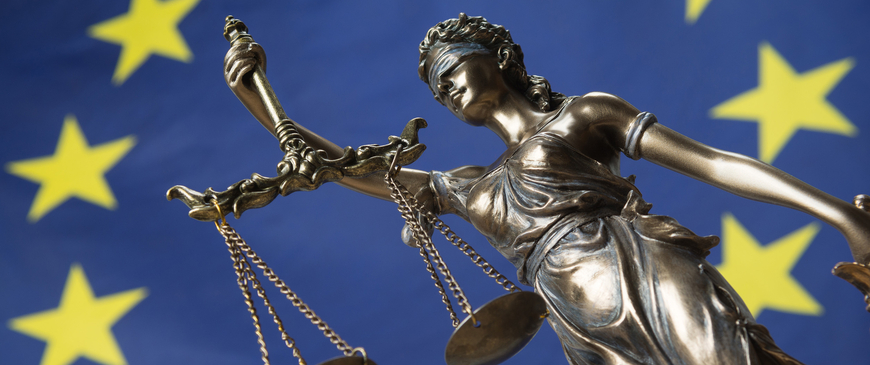
EU's rule of law crisis shows no signs of abating
While the European Parliament has been holding confirmation hearings for the incoming European Commission – including for Michael McGrath, the commissioner-designate for democracy, justice, and the rule of law – the EU’s rule-of-law crisis shows no signs of abating. The protagonists have changed somewhat – the election of a new government has radically improved the situation in Poland – but Hungary is an unrelenting troublemaker and intractable problems continue to pop up, most recently in Slovakia.
This is despite the fact that Brussels has done a lot to strengthen the tools for protecting the rule of law. Proposals by the incoming European Commission, such as expanding rule-of-law conditionality to all EU funds and strengthening cooperation with civil society, aim to bolster them further. Yet, these ideas will fail to have an impact if the EU does not learn from the experience of the past five years.
First, the EU has been slow and hesitant in enforcing its norms and values.
In 2019, before starting her first term as president of the European Commission, Ursula von der Leyen declared: “There can be no compromise when it comes to defending our core values.” Five years later, the toolbox for defending the rule of law has been reinforced. There is better monitoring of violations, increased funding for civil society and the media, and, most importantly, the new conditionality mechanism for hitting rule-breakers in the wallet.
Yet, these changes have failed to make a dent. The rule-of-law reports, which track developments in the member states, do not lead to clear consequences for those who break norms. The increase in democracy funding is small compared to the size of the problem; and it is a long-term investment anyway. Progress on using the Article 7 mechanism, the EU’s main tool for sanctioning countries, is gridlocked.
Introducing rule-of-law conditionality for EU funding has been a major step but it has failed to bite. Late last year, the European Commission authorised €10.2 billion to Hungary just as investors grew panicky over the long-term prospects of the country’s public finances. Budapest has learned the wrong lesson and is now trying to turn towards Chinese loans to weather future crises.
Second, the EU has also favoured keeping the peace over applying the law.
Von der Leyen reportedly delayed this year’s rule-of-law reports to avoid upsetting Italy. The European Commission’s release of Hungary’s funding came right before a crucial Council vote on Ukraine. And some member states have pushed for letting Prime Minister Viktor Orbán off the hook, arguing that taking punitive steps would antagonise him, ignoring the fact that not doing so has produced the same result. The enforcement of the rule of law has thus become political – but not in favour of the rule of law.
To turn the tide, the European Commission should first apply the law robustly and transparently.
In Hungary, the recently created Sovereignty Protection Office has formalised the government’s decade-long attack on its critics. It officially targets non-governmental organisations and journalists under the guise of protecting national security. This should prompt the European Commission to suspend some of the already released money for Hungary and to in no way consider unfreezing additional funds.
In Slovakia, a year after Prime Minister Robert Fico took office, his government is likewise undermining accountability mechanisms. It has abolished the special prosecutor’s office working on high-profile corruption, disbanded a police unit investigating organised crime, and captured the public broadcaster. Here, too, the European Commission should trigger conditionality instead of releasing EU funds.
In both cases, adding funding consequences to the rule-of-law reports, as proposed by the incoming European Commission, could remove any element of arbitrariness or political consideration when deciding whether to freeze money. Such a move would bolster the transparency and evidence base of the decisions.
But applying the law is not enough. If there is one thing we can learn from recent years, it is that politics matters and can drive success stories.
Poland’s turnaround is a case in point. While it was the voters who ousted the illiberal Law and Justice (PiS) government, the European Commission was very much present in Warsaw and EU involvement helped to clarify the high stakes of the elections, especially with regard to the rule of law.
This does not mean that the European Commission or member states should start interfering in national politics. But it does mean keeping an eye out for political opportunities that can favour defending or improving the rule of law.
In Hungary, the new Tisza opposition party is ahead of Fidesz in the latest polls; a first for any single opposition party since 2010. The elections are still a year and a half away but a reorganisation of the political ecosystem is already underway. Consistent engagement with Tisza could help make sure it takes a clear position in favour of the rule of law.
The moment may be less opportune in Slovakia, with the next elections not due until 2027. But engagement is a long-term game. The European Commission should clearly communicate any steps it intends to take to tackle backsliding on the rule of law, not only to the government but also to the pro-EU opposition and the public.
Defending democracy requires careful balancing between the legal and the political. Enforcement of the rule of law should be robust and transparent. But the EU should take note when political opportunities arise and exploit them in service of the rule of law.
Zselyke Csaky is a senior research fellow at the Centre for European Reform.
